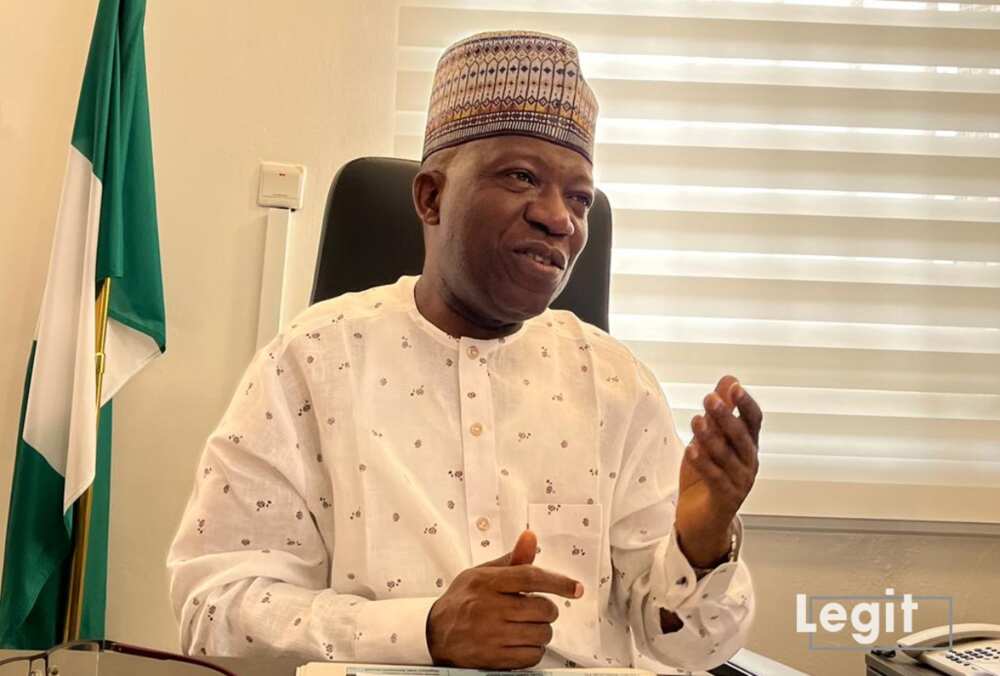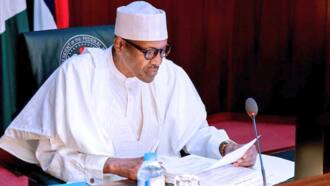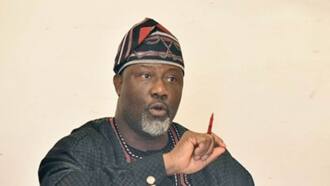Nigeria at 62: “We Must Shun the Theatrics of Politicians, Our Diversity Is Our Strength”, Says DG NILDS
- Professor Abubakar Sulaiman, the Director General of the National Institute for Legislative and Democratic Studies says Nigeria must practice true federalism
- He said the power vested in the federal government can be overwhelming while he made a case for the devolution of power down to the local councils
- The former minister of national planning says Nigeria's strength is in its diversity and citizens must not fall for the manipulations of politicians
PAY ATTENTION: Сheck out news that is picked exactly for YOU ➡️ find the “Recommended for you” block on the home page and enjoy!
FCT, Abuja - The month of October is one of the most nostalgic months amongst the people of Nigeria. It is an historic month that reminisces what Nigeria stands for as a nation, a month that birthed the nation and its existence as a federation, and a republic.
It's that time of the year when Nigerians all over the federation and in the diaspora celebrate the independence of a nation primed for glory, greatness, and grandiosity.

Source: Original
Reflecting on the journey of Nigeria so far since her independence on October 1, 1960, the Director General of the National Institute for Legislative and Democratic Studies, and former Minister of National Planning, Professor Abubakar Olarewanju Sulaiman in an exclusive chat with Legit.ng said Nigeria's transition to what it is currently has been commendable.
He stated that the current democratic dispensation in Nigeria is a testimony of how it has transitioned seamlessly from the pre-colonial, post-colonial, military, and democratic governments.
PAY ATTENTION: Join Legit.ng Telegram channel! Never miss important updates!
Professor Sulaiman said:
"Politically in terms of development we have come a long way from a country that is under colonialism up to the year 1960 when we got our independence to the post-colonial country sovereign nation from the year 1960 up to today making it 62 years of independence.

Read also
FULL TEXT: 'I share your pains,' Buhari says in last Independence Day speech as Giant of Africa's president
"Besides the 66’ coup that we had and perhaps the 76’ coup of the Murtala regime we’ve not had experiences of bloody military coups or changes of government. We have been having a peaceful transition and today that we have 22 years or 23 years of the civilian government to me, is something we need to appreciate God for."
He commended the role of Nigerians, civil society groups, and the media for being instrumental in keeping the peace and order of what Nigeria has become today.
When asked if the growing disparities and differences in the cultural, ethnoreligious value of Nigerians pose a threat to the stability of Nigeria, Prof Suleiman simply said, "the advantage is a strength for Nigerians".
He stated that the political elites have one way or the other used it as an instrument to achieve their selfish goals, causing more division to the detriment of the people.
Prof Sulaiman said:
"Ordinarily, it should be a strength but the elites have turned it to be a weakness.
"Religion is good, Islam is good, Christianity is good, the diversities are ok, but our elites have capitalized on that to achieve certain goals. You know all this religious crisis we are talking about is not religion per se."
"Our federal system needs modification and equilibrium” – Prof Sulaiman
When asked about the agitation for restructuring by concerned Nigerians, civil society groups, pressure groups, and some political institutions, Prof Sulaiman narrowed it down to the reformation of the federating system.
He said there was a need for a clear distinction between what Nigeria's federalism stands for and what it seeks to achieve.
While giving his personal submission, he said:
"Federalism as a system of government does not give or ascribe superiority to one unit above the other.
"Federalism suggests parity and equilibrium in power sharing, but what we operate in Nigeria which we claim to be federalism doesn't look like federalism. It looks like more of a unitary system of government because the center is stronger, the center is more overwhelming, and the center gives power to the units at will when it’s so decided. That's not federalism."

Read also
'He's a celebrated problem solver,' Dino Melaye makes boast of Atiku's capacity for presidential task ahead
Prof Sulaiman stressed that there was a need for the devolution of power down to the local government level because it is the closest seat of power to the people.
He said giving more power to the local government will hasten basic development at the grassroots level.
He further stated that empowering the local government will help address the issue of minorities who have been marginalised.
He said:
"We must get a review, of our amendment of the constitution that will see local government as a federating unit of recognition.
"In a situation where states control local government, where they share accounts, there is no autonomy of local government, it does not speak well of Nigerian's federalism.
"So, the essence of restructuring to my own belief is that we should devolve power down to the grass root. If they can do that believe me, the issue of insecurity, the issue of growth and development, the questions of youth inclusiveness the questions of unemployment, will be a thing of the past."
2023 election: "It will be decisive, transition will be smooth'' - Prof Sulaiman
Prof Sulaiman also shared his thoughts and expectations on the forthcoming general elections in 2023.
He told Legit.ng of his optimism that the election will be seamless like every other election since the advent of democracy in Nigeria.
He said:
"I see this 2023 general election perhaps as another transition of how civilian governments can peacefully and fairly allow the transition of power from one government to another.
"So, it’s going to be very decisive, very crucial but as tension mounts over what we should expect, personally, I still keep my hope alive and I believe everything will go on smoothly. Yea, what the political climate is throwing up now, in terms of the different candidate, especially for the general election suggest a reincarnation of what happened in 1979.
"That was the period major candidates were seen as reflections of different ethnic and religious groups. That was the time we had the likes of Shehu Shagari representing the North, we had Awolowo representing the Yorubas, and we had Zik representing the Igbos. We are having today a replication of such a scenario.
"Today now we are having major followers of the obi from the East, the Igbos, we have the Yoruba in the race, Asiwaju Ahmed Bola Tinubu, then we have the Atiku."
He, however, called on relevant stakeholders to help in managing the heat and tension that comes with the election.
Prof Sulaiman said managing the election in a way that will not reflect Nigeria's diversity, religious and tribal sentiment will go a long way in giving Nigeria a seamless and peaceful poll.
He also urged electorates not to be swayed by tribal or religious sentiments. He said Nigerians must come to the understanding that voting for competence should be a top priority before any other thing.
Source: Legit.ng




